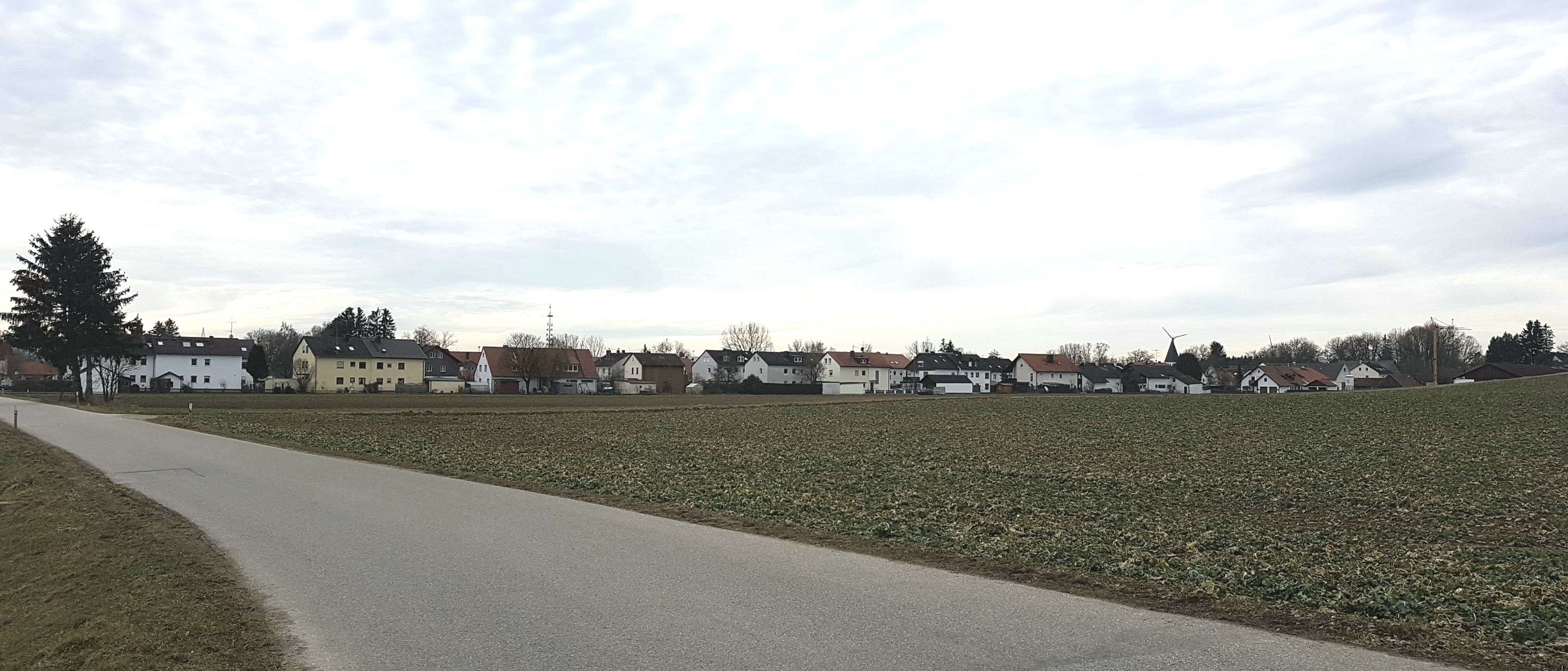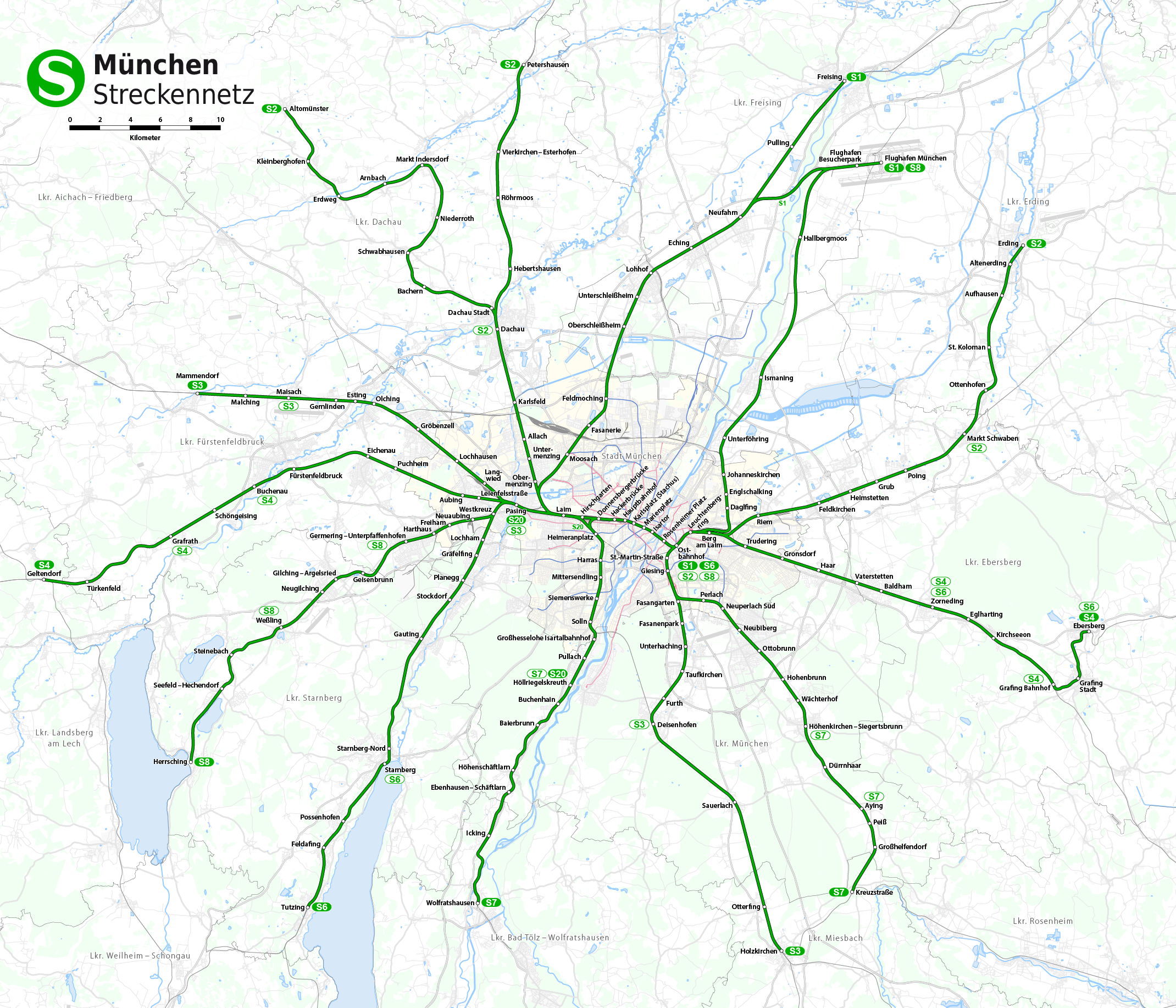|
Maisach
Maisach is a municipality in the district of Fürstenfeldbruck, in Bavaria, Germany. Maisach is the largest municipality in the Fürstenfeldbruck district. It is situated north of Fürstenfeldbruck, and northwest of Munich. It is served by an S-Bahn station on the towards Mammendorf, which lies south of the town center. The tallest building in the town belongs to the eponymously named local brewery and sports an aircraft warning beacon. Geography The community Maisach lies on the river Maisach. History The first documentary record of Maisach comes from the year 806. For the other districts excepting Gernlinden there are also records coming from the second half of the 8th and first half of the 9th century. Gernlinden is first recorded in 1436. In 1818 the community was established. The settlement Gernlinden was built after the first world war. The current organisation of the districts was carried out in 1978. Districts (Districts in ''italics'' are primary districts or ... [...More Info...] [...Related Items...] OR: [Wikipedia] [Google] [Baidu] |
Munich S-Bahn
The Munich S-Bahn (german: S-Bahn München) is an Railway electrification system, electric rail transit system in Munich, Germany. "S-Bahn" is the German abbreviation for ''Stadtschnellbahn'' (literally, "urban rapid rail"), and the Munich S-Bahn exhibits characteristics of both rapid transit and commuter rail systems. The Munich S-Bahn network is operated by S-Bahn München, a subsidiary of DB Regio Bayern, which is itself a subsidiary of the German national railway company, Deutsche Bahn. It is integrated into the Munich Transport and Tariff Association (''Münchner Verkehrs- und Tarifverbund'', MVV) and interconnected throughout the city with the locally owned Munich U-Bahn. Today, the S-Bahn covers most of the populated area of the Munich metropolitan area of about 2.7 million inhabitants. The Munich S-Bahn was established on 28 May 1972. It was intended as part of the scheme to provide an adequate transport system during the 1972 Summer Olympics held in Munich by connecting ... [...More Info...] [...Related Items...] OR: [Wikipedia] [Google] [Baidu] |
Maisach (Amper)
Maisach is a river of Bavaria, Germany. It is a left tributary of the Amper near Dachau. See also *List of rivers of Bavaria A list of rivers of Bavaria, Germany: A * Aalbach * Abens * Ach * Afferbach *Affinger Bach *Ailsbach * Aisch * Aiterach *Alpbach * Alster * Altmühl * Alz *Amper * Anlauter * Arbach *Arbachgraben *Aschaff * Aschbach *Attel * Aubach, tributary of ... References Rivers of Bavaria Rivers of Germany {{Bavaria-river-stub ... [...More Info...] [...Related Items...] OR: [Wikipedia] [Google] [Baidu] |
Mammendorf
Mammendorf is a municipality in Bavaria, Germany. It is located halfway between Munich and Augsburg. Location Mammendorf is part of the district of Fürstenfeldbruck, Upper Bavaria and lies about 6 kilometres northwest of the city of Fürstenfeldbruck. The towns Nannhofen and Peretshofen are part of the municipality of Mammendorf. Geography The Maisach River flows through Mammendorf. Transport Mammendorf-Nannhofen is the last station of the Munich S-Bahn line S3, as well as the terminus of the R1 line of Augsburg's transport system, Augsburger Verkehrsverbund (AVV). Notable people *Gerhard Merz Gerhard is a name of Germanic origin and may refer to: Given name * Gerhard (bishop of Passau) (fl. 932–946), German prelate * Gerhard III, Count of Holstein-Rendsburg (1292–1340), German prince, regent of Denmark * Gerhard Barkhorn (1919–19 ..., artist References Fürstenfeldbruck (district) {{Fürstenfeldbruck-geo-stub ... [...More Info...] [...Related Items...] OR: [Wikipedia] [Google] [Baidu] |
Fürstenfeldbruck (district)
Fürstenfeldbruck is a ''Landkreis'' (district) in Bavaria, Germany. It is bounded by (from the east and clockwise) the city of Munich and the districts of Munich, Starnberg, Landsberg, Aichach-Friedberg and Dachau. History In medieval times the region was a clerical state ruled by the abbey of Fürstenfeld. When the clerical states of Holy Empire were dissolved in 1803, the territory was annexed by Bavaria. The district of Fürstenfeldbruck was established in 1939. Geography The district is occupied by the western Munich metropolitan area. It has the highest population density of all Bavarian districts. More than 90 percent of the population live in the eastern half of the district, which includes the suburbs of Munich. Coat of arms * The red and white bar is from the family arms of Saint Bernard, who had been the founder of the Cistercian The Cistercians, () officially the Order of Cistercians ( la, (Sacer) Ordo Cisterciensis, abbreviated as OCist or SOCist), are ... [...More Info...] [...Related Items...] OR: [Wikipedia] [Google] [Baidu] |
Bündnis 90/Die Grünen
Alliance 90/The Greens (german: Bündnis 90/Die Grünen, ), often simply referred to as the Greens ( ), is a green political party in Germany. It was formed in 1993 as the merger of The Greens (formed in West Germany in 1980) and Alliance 90 (formed in East Germany in 1990). The Greens had itself merged with the East German Green Party after German reunification in 1990. Since January 2022, Ricarda Lang and Omid Nouripour have been co-leaders of the party. It currently holds 118 of the 736 seats in the Bundestag, having won 14.8% of votes cast in the 2021 federal election, and its parliamentary group is the third largest of six. Its parliamentary co-leaders are Britta Haßelmann and Katharina Dröge. The Greens have been part of the federal government during two periods: first as a junior partner to the Social Democrats (SPD) from 1998 to 2005, and again with the SPD and the FDP following the 2021 German federal election. In the incumbent Scholz cabinet, the Greens have five ... [...More Info...] [...Related Items...] OR: [Wikipedia] [Google] [Baidu] |
Freie Wähler
Free Voters (german: Freie Wähler, FW or FWG) in Germany may belong to an association of people which participates in an election without having the status of a registered political party. Usually it involves a locally organized group of voters in the form of a registered association (eV). In most cases, Free Voters campaign only at the local-government level, standing for city councils and for mayoralties. Free Voters tend to achieve their most successful electoral results in rural areas of southern Germany, appealing most to conservative voters who prefer local decisions to party politics. Free Voter groups are active in all German states. Unlike in the other German states, the Free Voters of Bavaria have also contested state elections since 1998. In the Bavaria state election of 2008 FW obtained 10.2% of the vote and gained their first 20 seats in the Landtag. FW may have been helped by the presence in its list of Gabriele Pauli, a former member of the Christian Social Uni ... [...More Info...] [...Related Items...] OR: [Wikipedia] [Google] [Baidu] |
Sozialdemokratische Partei Deutschlands
The Social Democratic Party of Germany (german: Sozialdemokratische Partei Deutschlands, ; SPD, ) is a centre-left social democratic political party in Germany. It is one of the major parties of contemporary Germany. Saskia Esken has been the party's leader since the 2019 leadership election together with Lars Klingbeil, who joined her in December 2021. After Olaf Scholz was elected chancellor in 2021 the SPD became the leading party of the federal government, which the SPD formed with the Greens and the Free Democratic Party, after the 2021 federal election. The SPD is a member of 11 of the 16 German state governments and is a leading partner in seven of them. The SPD was established in 1863. It was one of the earliest Marxist-influenced parties in the world. From the 1890s through the early 20th century, the SPD was Europe's largest Marxist party, and the most popular political party in Germany. During the First World War, the party split between a pro-war mainstream and ... [...More Info...] [...Related Items...] OR: [Wikipedia] [Google] [Baidu] |
Christlich-Soziale Union In Bayern
The Christian Social Union in Bavaria (German: , CSU) is a Christian-democratic and conservative political party in Germany. Having a regionalist identity, the CSU operates only in Bavaria while its larger counterpart, the Christian Democratic Union (CDU), operates in the other fifteen states of Germany. It differs from the CDU by being somewhat more conservative in social matters, following Catholic social teaching. The CSU is considered the ''de facto'' successor of the Weimar-era Catholic Bavarian People's Party. At the federal level, the CSU forms a common faction in the Bundestag with the CDU which is frequently referred to as the Union Faction (''die Unionsfraktion'') or simply CDU/CSU. The CSU has 45 seats in the Bundestag since the 2021 federal election, making it currently the second smallest of the seven parties represented. The CSU is a member of the European People's Party and the International Democrat Union. Party leader Markus Söder serves as Minister-Pre ... [...More Info...] [...Related Items...] OR: [Wikipedia] [Google] [Baidu] |
Ortsteil
A village is a clustered human settlement or Residential community, community, larger than a hamlet (place), hamlet but smaller than a town (although the word is often used to describe both hamlets and smaller towns), with a population typically ranging from a few hundred to a few thousand. Though villages are often located in rural areas, the term urban village is also applied to certain urban neighborhoods. Villages are normally permanent, with fixed dwellings; however, transient villages can occur. Further, the dwellings of a village are fairly close to one another, not scattered broadly over the landscape, as a dispersed settlement. In the past, villages were a usual form of community for societies that practice subsistence agriculture, and also for some non-agricultural societies. In Great Britain, a hamlet earned the right to be called a village when it built a Church (building), church. [...More Info...] [...Related Items...] OR: [Wikipedia] [Google] [Baidu] |
Bayerisches Landesamt Für Statistik
The statistical offices of the German states (German language, German: ''Statistische Landesämter'') carry out the task of collecting official statistics in Germany together and in cooperation with the Federal Statistical Office of Germany, Federal Statistical Office. The implementation of statistics according to Article 83 of the Basic Law for the Federal Republic of Germany, constitution is executed at state level. The Bundestag, federal government has, under Article 73 (1) 11. of the constitution, the exclusive legislation for the "statistics for federal purposes." There are 14 statistical offices for the States of Germany, 16 states: See also * Federal Statistical Office of Germany References {{Reflist National statistical services, Germany Lists of organisations based in Germany, Statistical offices Official statistics, Germany ... [...More Info...] [...Related Items...] OR: [Wikipedia] [Google] [Baidu] |


